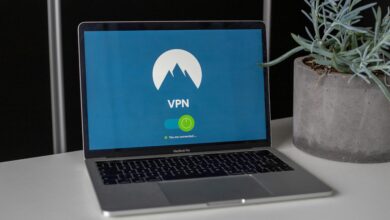The Pros and Cons of Free vs. Paid VPNs

In today’s digital age, where online privacy and security are paramount, Virtual Private Networks (VPNs) have become essential tools for protecting sensitive data, bypassing geo-restrictions, and ensuring anonymity on the internet. However, when choosing a VPN, users often face a critical decision: should they opt for a free VPN or invest in a paid VPN ? Both options come with their own sets of advantages and disadvantages, and understanding these can help you make an informed choice based on your needs and priorities.
In this article, we’ll explore the pros and cons of free and paid VPNs to help you decide which option is best for you.
What is a VPN?
A VPN creates a secure, encrypted connection between your device and the internet, masking your IP address and routing your traffic through a remote server. This ensures that your online activities remain private and inaccessible to hackers, ISPs (Internet Service Providers), or government surveillance. While both free and paid VPNs offer similar core functionalities, their performance, features, and reliability differ significantly.
Free VPNs: Pros and Cons
Pros of Free VPNs
- Cost-Effective
- The most obvious advantage of free VPNs is that they don’t cost anything. For users who only need basic functionality or occasional use, free VPNs can be a convenient option.
- Easy Access
- Free VPNs are widely available and easy to download from app stores or websites. Many offer user-friendly interfaces, making them accessible even to beginners.
- Basic Privacy Features
- Free VPNs can provide a baseline level of privacy by encrypting your connection and hiding your IP address. This can be useful for casual browsing or accessing public Wi-Fi securely.
- Trial Before Commitment
- Some free VPNs serve as limited versions of paid services, allowing users to test the platform before upgrading to a premium plan.
Cons of Free VPNs
- Limited Bandwidth and Data Caps
- Most free VPNs impose strict data limits or throttle speeds after a certain usage threshold. This can be frustrating for streaming, downloading, or extended browsing sessions.
- Fewer Server Options
- Free VPNs typically offer a limited number of servers, often located in fewer countries. This restricts your ability to bypass geo-blocks or access region-specific content.
- Ads and Intrusive Practices
- To generate revenue, many free VPNs bombard users with ads or require them to watch videos before using the service. Some even sell user data to third parties, undermining the very purpose of using a VPN.
- Security Risks
- Not all free VPNs prioritize user safety. Some may lack robust encryption protocols, leaving your data vulnerable to cyberattacks. Worse still, some free VPNs have been found to inject malware or spyware into users’ devices.
- Slower Speeds
- Due to overcrowded servers and limited infrastructure, free VPNs often deliver slower connection speeds, which can disrupt activities like streaming or gaming.
- No Customer Support
- Free VPNs rarely offer reliable customer support. If you encounter issues, you’re largely on your own.
Paid VPNs: Pros and Cons
Pros of Paid VPNs
- Enhanced Security
- Paid VPNs typically use advanced encryption protocols (e.g., AES-256) and follow strict no-logs policies, ensuring that your data remains private and secure.
- Unlimited Bandwidth
- Most paid VPNs offer unlimited data usage and faster speeds, making them ideal for heavy tasks like HD streaming, torrenting, or large downloads.
- Wide Range of Servers
- Paid VPNs provide access to a vast network of servers across multiple countries, enabling seamless geo-unblocking and improved connection stability.
- Ad-Free Experience
- Unlike free VPNs, paid services are usually ad-free, offering a cleaner and more enjoyable user experience.
- Advanced Features
- Premium VPNs often include additional features such as split tunneling, kill switches, multi-device support, and dedicated IP addresses, enhancing both functionality and convenience.
- Reliable Customer Support
- Paid VPN providers typically offer 24/7 customer support via live chat, email, or phone, ensuring prompt assistance whenever needed.
- Regular Updates
- Reputable paid VPNs frequently update their software to patch vulnerabilities and improve performance, keeping you protected against emerging threats.
Cons of Paid VPNs
- Cost
- The primary downside of paid VPNs is the subscription fee, which can range from $3 to $15 per month depending on the provider and plan. While affordable for many, it may still deter budget-conscious users.
- Subscription Management
- Managing recurring payments and avoiding automatic renewals can sometimes be inconvenient, especially if you forget to cancel before the trial period ends.
- Overwhelming Choices
- With hundreds of paid VPNs on the market, choosing the right one can feel overwhelming. It’s important to research and compare providers to find the best fit for your needs.
Key Differences Between Free and Paid VPNs
| Feature | Free VPNs | Paid VPNs |
|---|---|---|
| Cost | Free | Subscription-based ($3–$15/month) |
| Data Limits | Often capped | Unlimited |
| Speed | Slower due to overcrowding | Faster and more reliable |
| Server Locations | Limited | Extensive global coverage |
| Encryption | Basic or weak | Strong (e.g., AES-256) |
| Privacy | May log or sell user data | No-logs policy (reputable providers) |
| Ads | Frequent and intrusive | Ad-free |
| Customer Support | Minimal or nonexistent | 24/7 support |
| Advanced Features | Rarely included | Common (kill switch, split tunneling) |
Who Should Use a Free VPN?
Free VPNs may be suitable for:
- Casual users who only need occasional privacy protection.
- Individuals testing out a service before committing to a paid plan.
- Those on a tight budget who cannot afford a subscription.
However, free VPNs are generally not recommended for activities requiring high levels of security, such as online banking, torrenting, or accessing sensitive information.
Who Should Use a Paid VPN?
Paid VPNs are ideal for:
- Users seeking robust security and privacy.
- Frequent travelers who need to bypass geo-restrictions.
- Streamers, gamers, and professionals who require fast and stable connections.
- Anyone handling sensitive data or conducting confidential transactions online.


